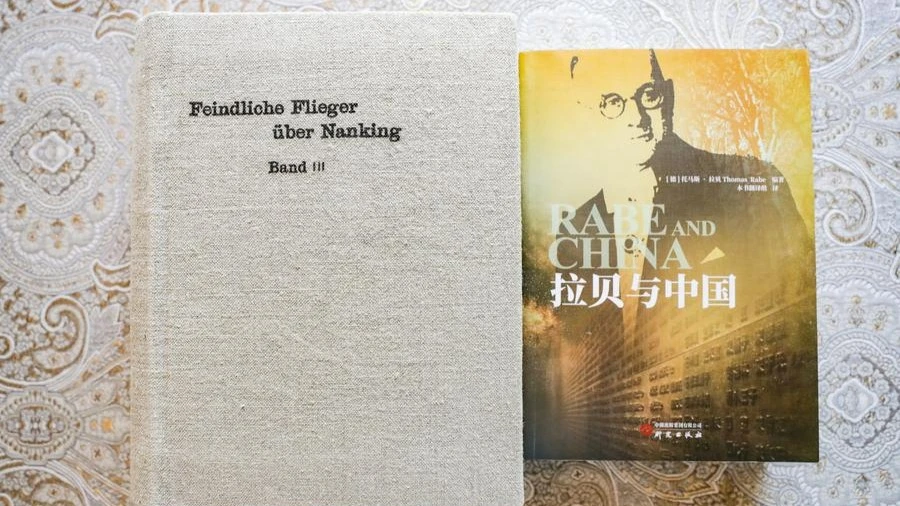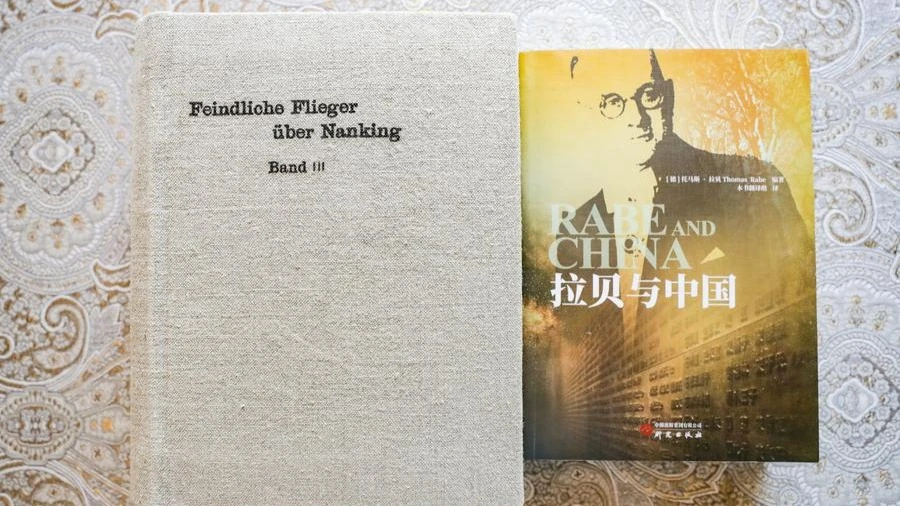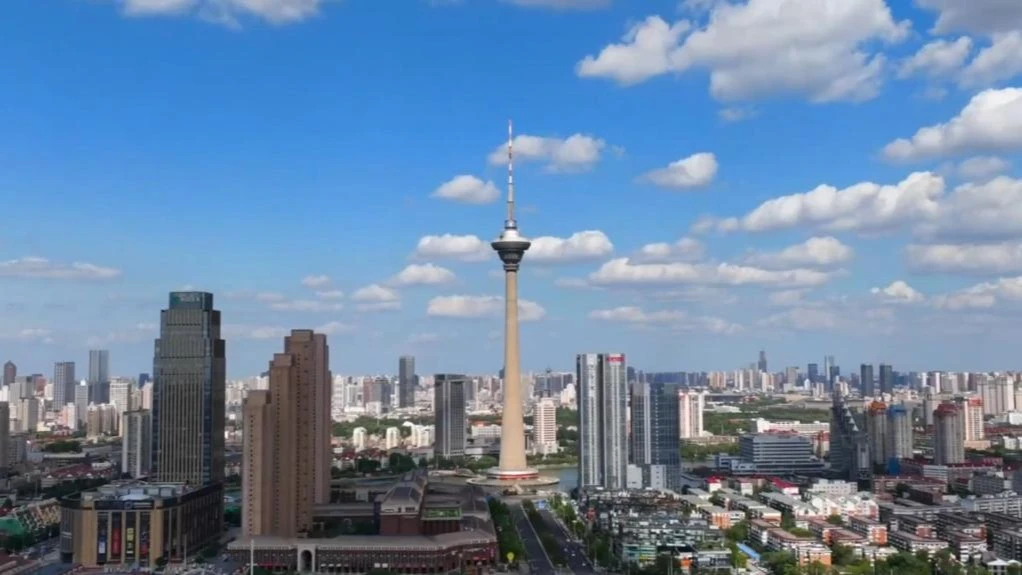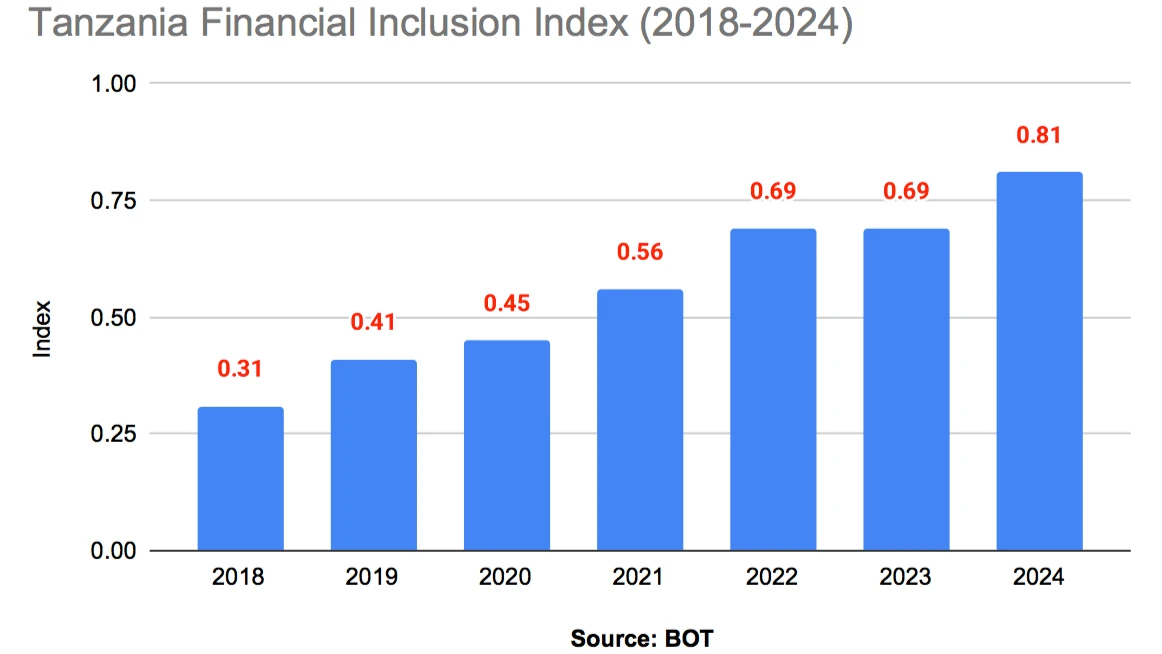German businessman John Rabe's diaries bear witness, defy silence on Nanjing Massacre

As Japanese aggressors stormed into Nanjing in the winter of 1937, the Chinese city was plunged into unimaginable horror.
Over just six weeks, tens of thousands of civilians were slaughtered, women were raped and butchered. Homes, shops and entire neighborhoods were left in ruins. Historical records put the death toll at more than 300,000, searing the mass atrocity into history as one of World War II's darkest and most harrowing chapters.
Amid the massacre, a German businessman named John Rabe continued to keep a diary, and his diaries remain one of the most comprehensive historical records of the atrocities committed by the Japanese aggressors.
WITNESS IN THE DARK
Serving as the Siemens representative in China, Rabe helped establish the Nanjing Safety Zone together with other foreign residents. The 3.86-square-km refuge protected around 250,000 Chinese civilians from the massacre.
Despite the constant peril, Rabe stayed in the city and negotiated repeatedly with the Japanese military to rescue victims and defend the safety zone. At the same time, he documented the atrocities unfolding around him in his diaries.
"I want to witness these atrocities with my own eyes, so that I can later speak of them as an eyewitness. Such brutal crimes -- committed 10 days after the city's capture -- must not be kept silent!" he wrote on Dec. 24, 1937.
On Dec. 14, 1937, the day after Nanjing's fall, Rabe confided in his diary that it was not until he drove through the shattered streets that he grasped the true extent of the destruction.
"Every 100 or 200 meters, we came across corpses. The Japanese marched through the city in groups of 10 to 20 men, looting shops. Had I not seen it with my own eyes, I would not have believed it," reads the diary.
On another page, he recounted the fate of a boy of about seven, stabbed four times with a bayonet. One gash in his abdomen, Rabe wrote, was "the length of a finger." The child survived for two days in the hospital before dying -- quietly, without a single cry.
STRUGGLE FOR TRUTH
After returning to Germany, Rabe sought to make the world see what he had witnessed, delivering speeches and filing reports that called on his government to condemn the atrocities. Instead of acknowledgment, he was punished -- interrogated, imprisoned and effectively silenced for "damaging German-Japanese relations."
"Rabe faced severe hardship upon returning home," his great-grandson Christoph Reinhardt told Xinhua. "He was blacklisted, lost his job, and was banned from speaking out."
"My mother was only seven years old, playing in the street, when she saw men in black coats take her grandfather away for questioning," Reinhardt said. "That moment haunted her for the rest of her life," keeping her from speaking about Rabe for decades.
It was not until 1996 that The Diaries of John Rabe was finally published.
"I believe it was the right and courageous decision," Reinhardt said. "These diaries are an invaluable record for all humanity. They document the horrific atrocities committed by the invading Japanese army in Nanjing, and reveal the brutality of that human tragedy."
MUST NOT BE FORGOTTEN
However, the significant publication drew little attention in the West.
Reinhardt noted that in Germany, China's role in World War II has long been pushed to the margins of public discourse. At school, the war was taught almost exclusively as a European conflict from 1939 to 1945, while China's suffering and resistance were largely and deliberately forgotten.
"That part of history has never been a headline in Europe, and Rabe is not a household name here," Reinhardt said.
"History should not be remembered selectively," he added. "The West must know more about Nanjing, and also acknowledge the suffering and sacrifice of the Chinese people in the global fight against fascism."
To bring that history into the spotlight, an exhibition titled My Neighbor: John Rabe opened in Hamburg on Aug. 15, drawing over 100 guests from both China and Germany to honor the man whose legacy still resonates across borders.
"We didn't create this exhibition to reopen old wounds," said Chen Min, head of the German Department at the School of Foreign Studies at Nanjing University. "It's about remembering the warmth of humanity and the friendships that transcend borders. We hope visitors reflect not only on the past, but also on the shared emotional bonds and precious value of peace."
Ulrich Johannes Schneider, a professor at the Institute for Cultural Studies at Leipzig University, told Xinhua that the exhibition offers a rare example of how one person can make a difference in history through personal belief and action.
The exhibition shows the deep emotional bond between Rabe and the Chinese people, Schneider said. "In very political times, he was following his heart ... and did really amazing things."
Top Headlines
© 2025 IPPMEDIA.COM. ALL RIGHTS RESERVED






















